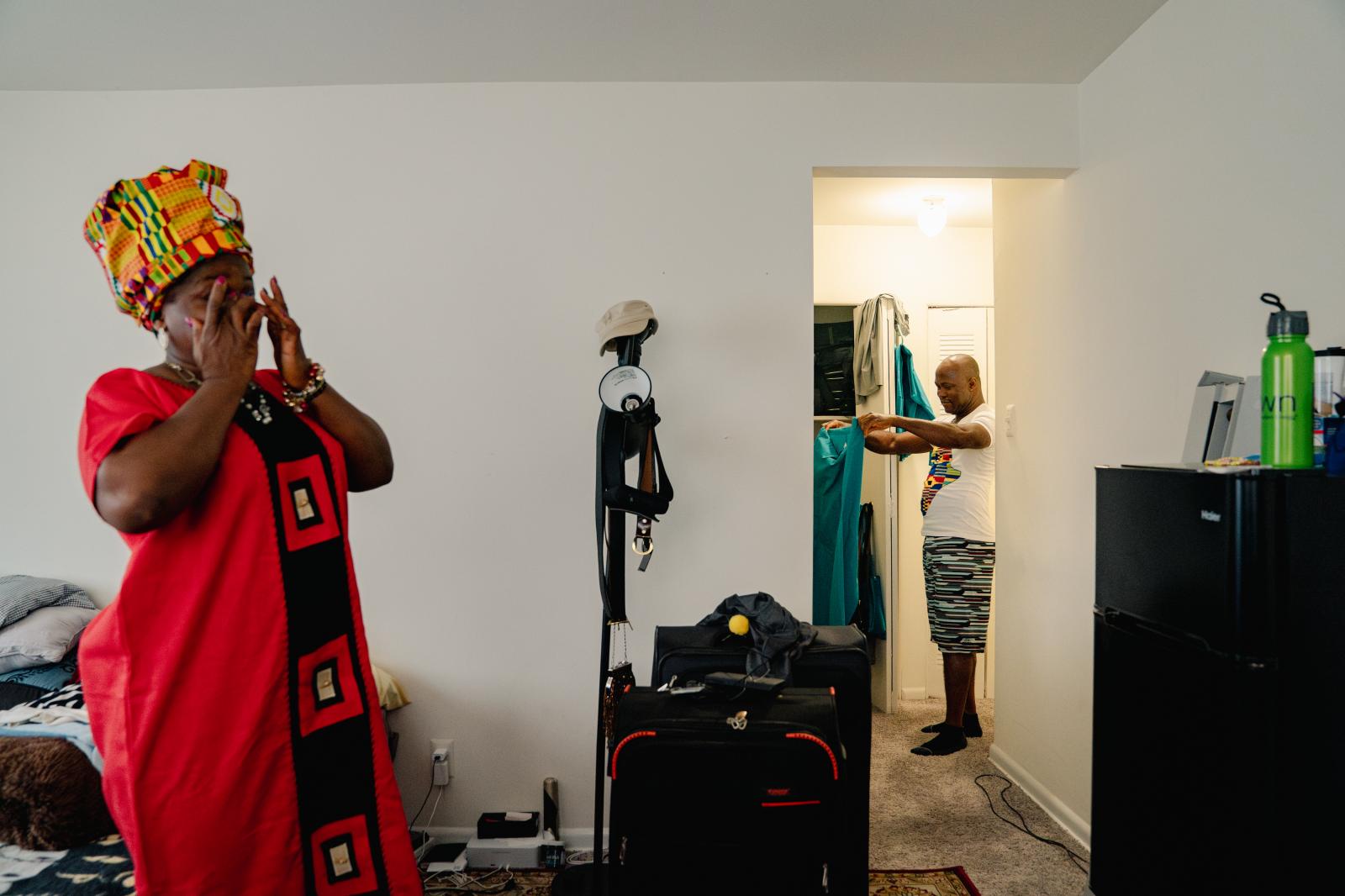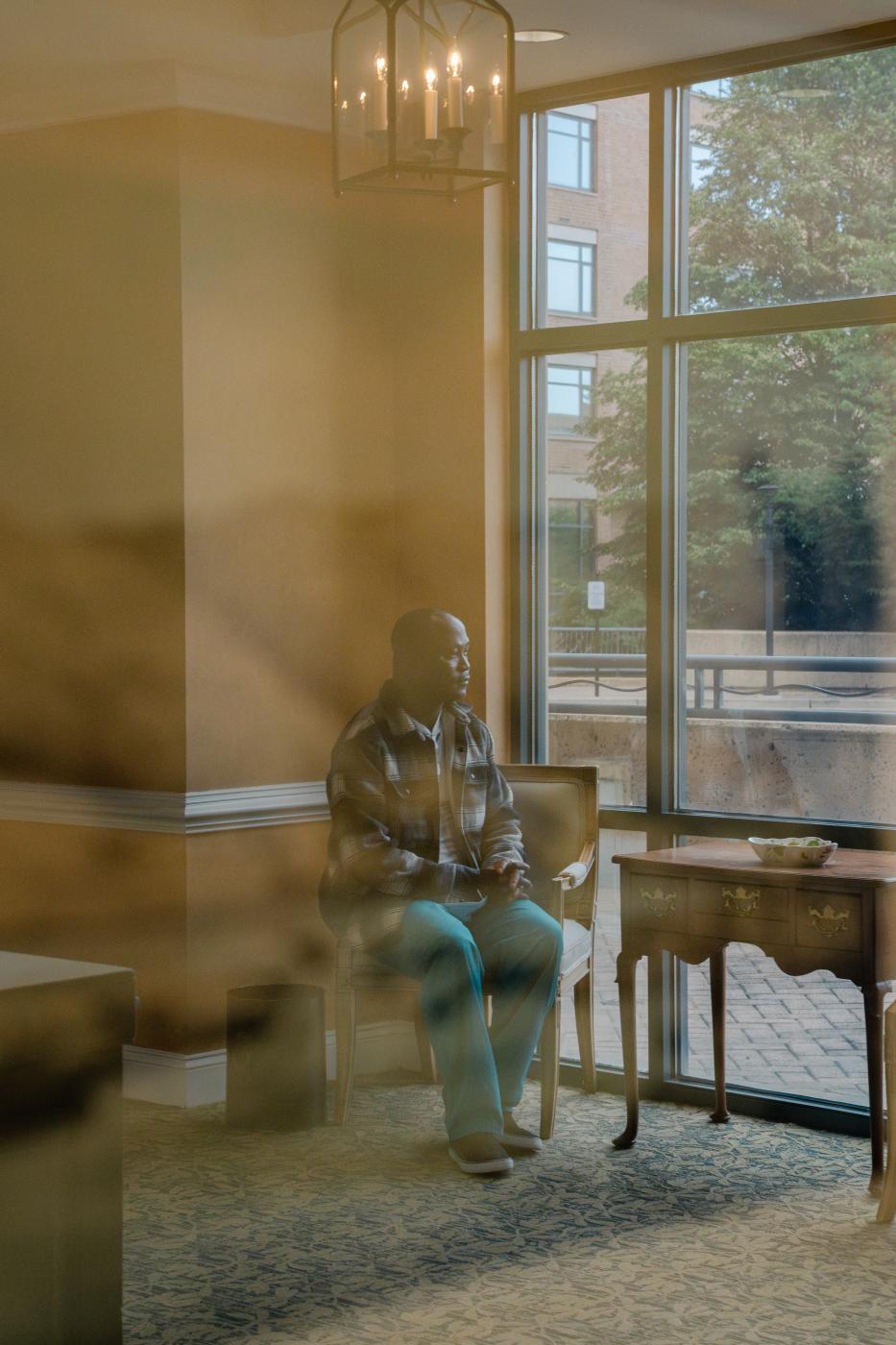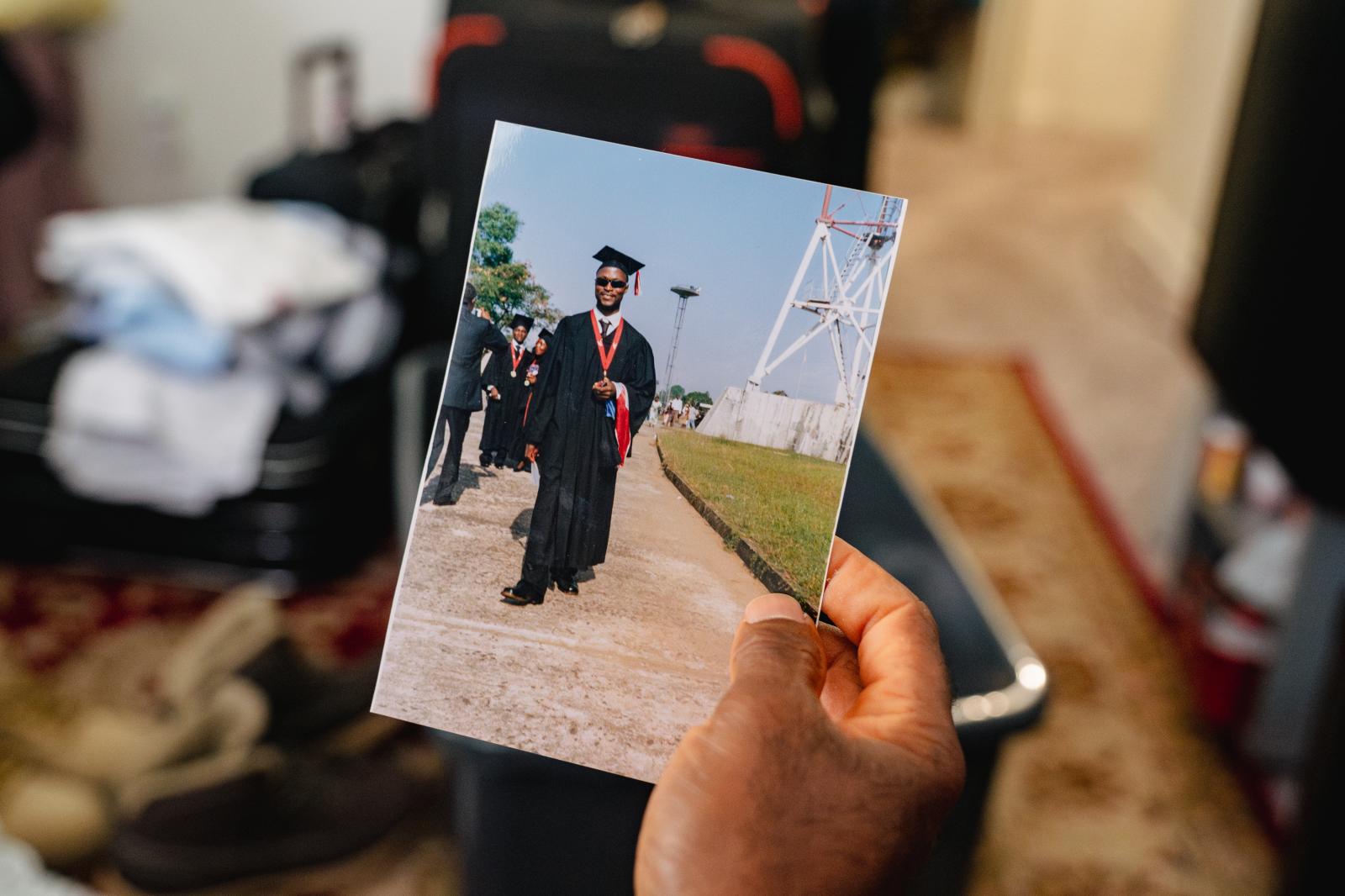Public Project
For POLITICO: The Crisis Facing Nursing Homes, Assisted Living and Home Care for America’s Elderly
December blurred to January, and the night shift blurred into the day shift, as Momah Wolapaye, 53, rotated warm towels beneath the bedridden at the nursing care wing for the Covid-positive. Repositioning the residents every two hours prevented bed sores, and normally took two aides, but now only one was permitted in rooms.
For decades, elder care in the U.S. has been bolstered by an immigrant workforce. As a new immigrant from Liberia, Wolapaye found his first job in America at Goodwin Living 11 years ago. Immigrants occupy nearly 70 percent of jobs at the Alexandria, Va., facility.
But today, international migration to the U.S. is at record-lows. It’s a particularly important question as the crisis we’re in now is nothing compared to what’s coming: The percentage of people over the age of 85 — the group that most needs care — is predicted to double to 14 million by 2040. Still, despite the challenges that have pushed so many away from elder care work, immigrants, like Wolapaye, continue to seek and have remained in these difficult jobs.
It was 2010, Sociology 400 was his last exam, and Wolapaye was walking a 90-minute commute to take it, at the University of Liberia, when his Nokia phone rang: He had been selected for a Diversity Visa, better known as the “The Green Card Lottery.” He stopped in the road, in disbelief. He had filled out a lottery form with 13 million other people that year but hadn’t expected to win. Things had not been easy. Liberia’s Civil War shut down his high school for 15 years, and he passed the time volunteering at a war-wrecked hospital. One brother died by Gaboon viper, another by motorcycle accident. Recently he had become a father and needed to provide for his family. This was his “golden ticket,” he said.
The story of Wolapaye’s path to the U.S. and Goodwin Living offers a roadmap for policymakers to address the elder care crisis in America. Ultimately, broad immigration reform, as well as a comprehensive policy push at the state and federal level for better pay and working conditions in the caregiving industry, is required.
Photo Editor: Chase Sutton
Reporter: Alexandra Moe
2,213
















